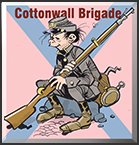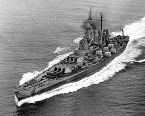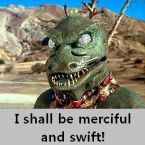Bullwinkle58
Posts: 11302
Joined: 2/24/2009
Status: offline

|
quote:
ORIGINAL: mind_messing
quote:
ORIGINAL: Bullwinkle58
quote:
ORIGINAL: mind_messing
My view is that the bombs were unneeded. The Japanese will to fight went after the news of the Soviet invasion.
You know that and historians believe that. Did HST know that at Potsdam? If so, how?
MAGIC - the Americans had been reading the Japanese diplomatic code since before the war started.
My google-fu turned up this website. I can't vouch for the accuracy of any of it, but the author does at least provide references, which I'll chase up if I can.
http://www.doug-long.com/hiroshim.htm
The quote in question
quote:
July 11: "make clear to Russia... We have no intention of annexing or taking possession of the areas which we have been occupying as a result of the war; we hope to terminate the war".
July 12: "it is His Majesty's heart's desire to see the swift termination of the war".
July 13: "I sent Ando, Director of the Bureau of Political Affairs to communicate to the [Soviet] Ambassador that His Majesty desired to dispatch Prince Konoye as special envoy, carrying with him the personal letter of His Majesty stating the Imperial wish to end the war" (for above items, see: U.S. Dept. of State, Potsdam 1, pg. 873-879).
July 18: "Negotiations... necessary... for soliciting Russia's good offices in concluding the war and also in improving the basis for negotiations with England and America." (Magic-Diplomatic Summary, 7/18/45, Records of the National Security Agency, Magic Files, RG 457, Box 18, National Archives).
July 22: "Special Envoy Konoye's mission will be in obedience to the Imperial Will. He will request assistance in bringing about an end to the war through the good offices of the Soviet Government." The July 21st communication from Togo also noted that a conference between the Emperor's emissary, Prince Konoye, and the Soviet Union, was sought, in preparation for contacting the U.S. and Great Britain (Magic-Diplomatic Summary, 7/22/45, Records of the National Security Agency, Magic Files, RG 457, Box 18, National Archives).
July 25: "it is impossible to accept unconditional surrender under any circumstances, but we should like to communicate to the other party through appropriate channels that we have no objection to a peace based on the Atlantic Charter." (U.S. Dept. of State, Potsdam 2, pg. 1260 - 1261).
July 26: Japan's Ambassador to Moscow, Sato, to the Soviet Acting Commissar for Foreign Affairs, Lozovsky: "The aim of the Japanese Government with regard to Prince Konoye's mission is to enlist the good offices of the Soviet Government in order to end the war." (Magic-Diplomatic Summary, 7/26/45, Records of the National Security Agency, Magic Files, RG 457, Box 18, National Archives).
President Truman knew of the messages' content, noting, for instance, in his diary on July 18, "Stalin had told P.M. [Prime Minister Churchill] of telegram from Jap [sic] Emperor asking for peace" (Robert Ferrell, ed., Off the Record - the Private Papers of Harry S. Truman, pg. 53).
HST knew about the Sato cable and the others, yes. But their content was not the same as an open declaration that Japan was going to unconditionally surrender. This is the crux. The July 25 content above shows their position had not really changed in years.
McCullough, in "Truman", relates the Potsdam conference in great detail. On the evening (Europe time) the Trinity success was top-lined to HST, Stalin had reiterated that the USSR would enter against Japan as agreed at Yalta. He named a mid-August date. The next day a more complete secret cable offered more details of the test. After the formal session that day Truman spoke alone to Churchill. McCullough writes:
"They talked of the war in the Pacific and Churchill pondered whether new wording might be devised so that the Japanese could surrender and yet salvage some sense of their military honor. Truman countered by saying he did not think the Japanese had any military honor, not after Pearl Harbor. Churchill said that 'at any rate they had something for which they were ready to face certain death in very large numbers, and this might not be so important to us as it was to them.' At this Truman turned 'quite sympathetic,' as Churchill recounted, and began talking of 'the terrible responsibilities upon him in regard to unlimited effusion of American blood.' 'He invited personal friendship and comradeship,' Churchill wrote. 'He seems a man of exceptional character . . .'"
After this meeting Truman called alone on Stalin, accompanied by Byrnes and Bohlen. At that meeting Stalin showed the Sato cable, which Truman already had read. Still, he was impressed with Stalin's openness. "It might be best, said Stalin, to 'lull the Japanese to sleep.'" Truman said he would leave the response to the Sato cable up to Stalin. Thus indicating he had already most likely made a decision on Manhattan.
The conference continued with Churchill making increasingly long-winded speeches and Truman growing exasperated. He wanted decisions, not speeches. Most of the content of the conference dealt with Germany, Italy, the zones inherent in Europe, and other non-Japanese issues. To the Soviets and UK the war was essentially already over. After the Battle of Berlin Stalin seemed to view the coming war in the east as a minor operation more or less. The British really had no part to play with the Home Islands.
Truman wrote "I'm not going to stay around this terrible place all summer just to listen to speeches." In a letter to Bess he said Stalin's agreement to join against Japan was what he had come for, and he had it. But in his diary he wrote "Believe Japs will fold up before Russia comes in. I am sure they will when Manhattan appears over their homeland."
The issue was decided as far as Truman was concerned. And his vote was the only one that mattered.
Again, the cable stack you posted above shows that Japan well-understood the terms available. They didn't like them. They were looking for a way to weasel out of the situation they had placed themselves in. But Truman was far more worried about what Stalin could and would do in the east than Japan's problems. In some ways he was an excellent leader because he didn't complicate uncomplicated things. Japan could have avoided the Bomb by surrendering, before July, in July, or in the time between Hiroshima and Nagasaki. Anything else is just a waste of logic.
< Message edited by Bullwinkle58 -- 12/30/2014 2:01:05 AM >
_____________________________
The Moose
|
 Printable Version
Printable Version





















 New Messages
New Messages No New Messages
No New Messages Hot Topic w/ New Messages
Hot Topic w/ New Messages Hot Topic w/o New Messages
Hot Topic w/o New Messages Locked w/ New Messages
Locked w/ New Messages Locked w/o New Messages
Locked w/o New Messages Post New Thread
Post New Thread